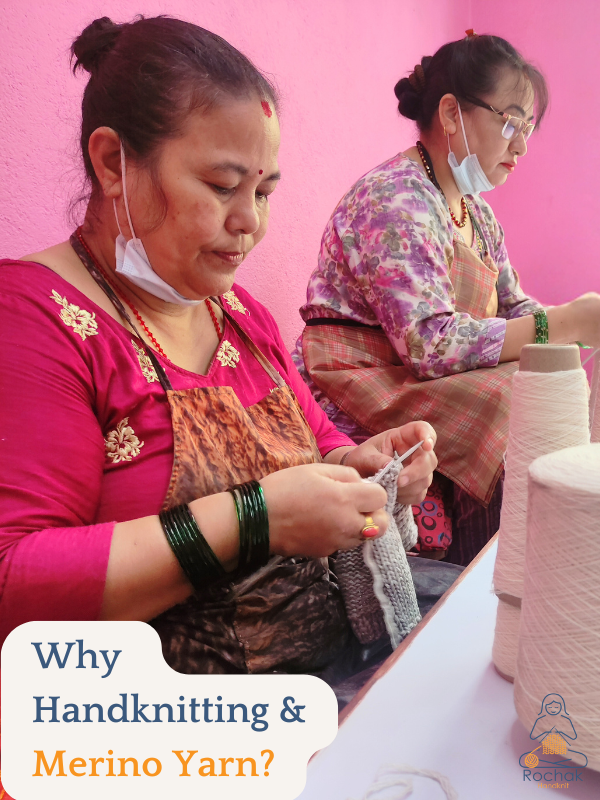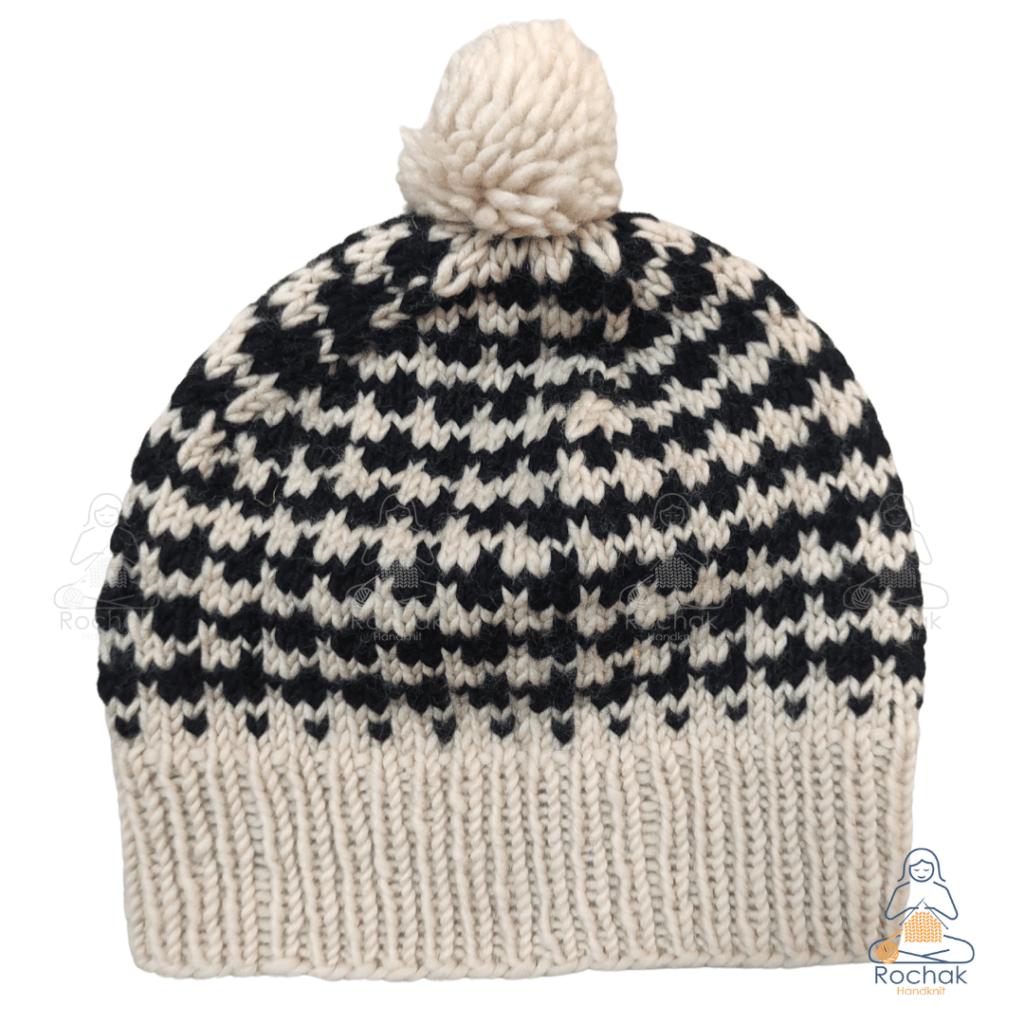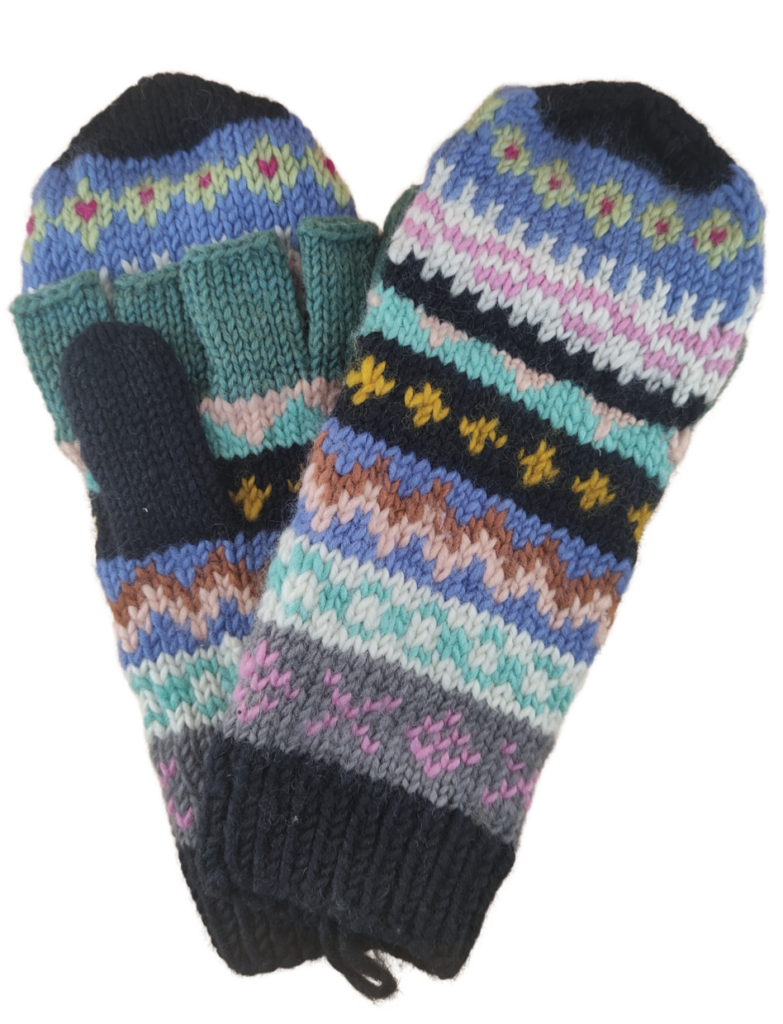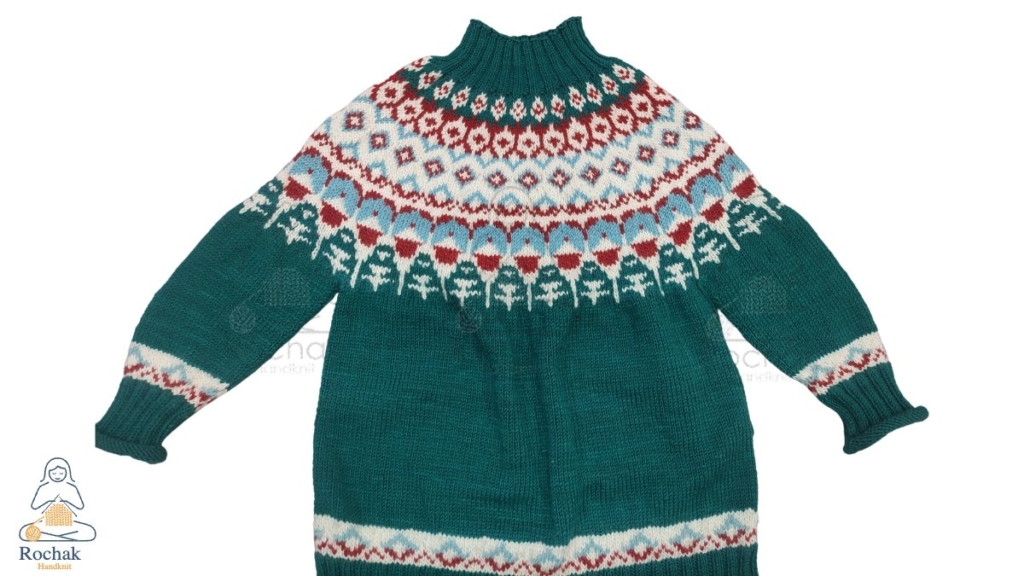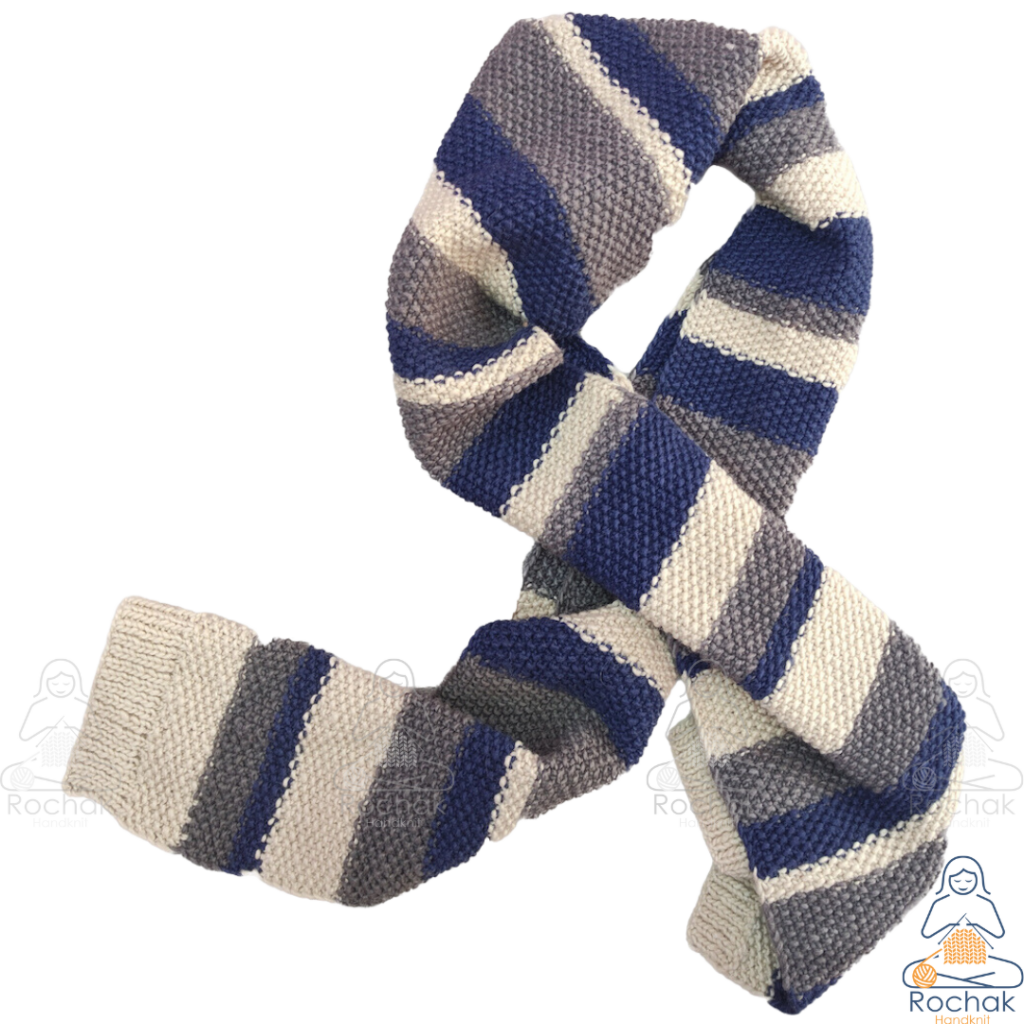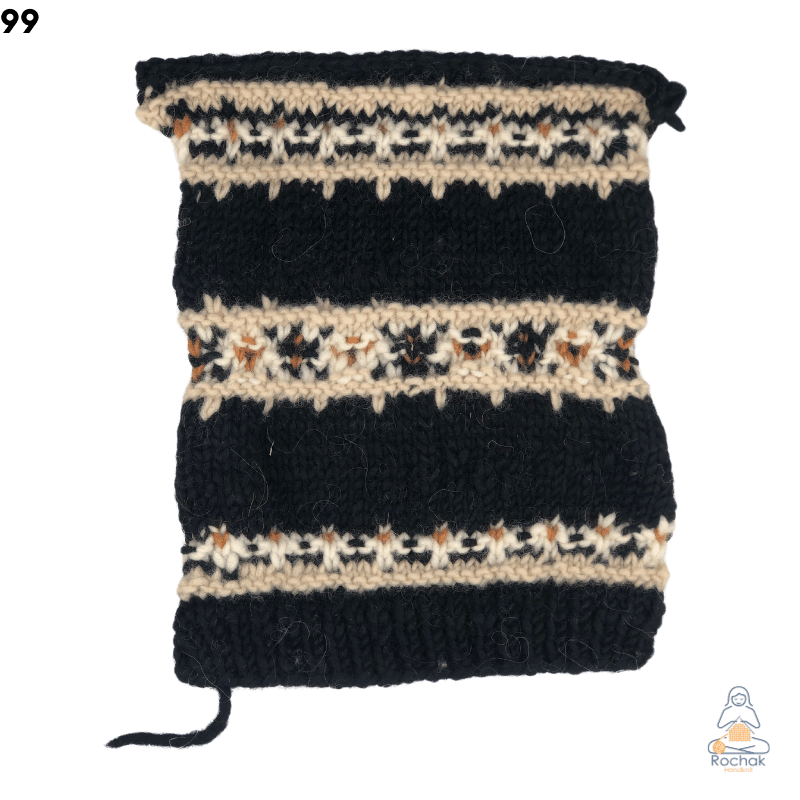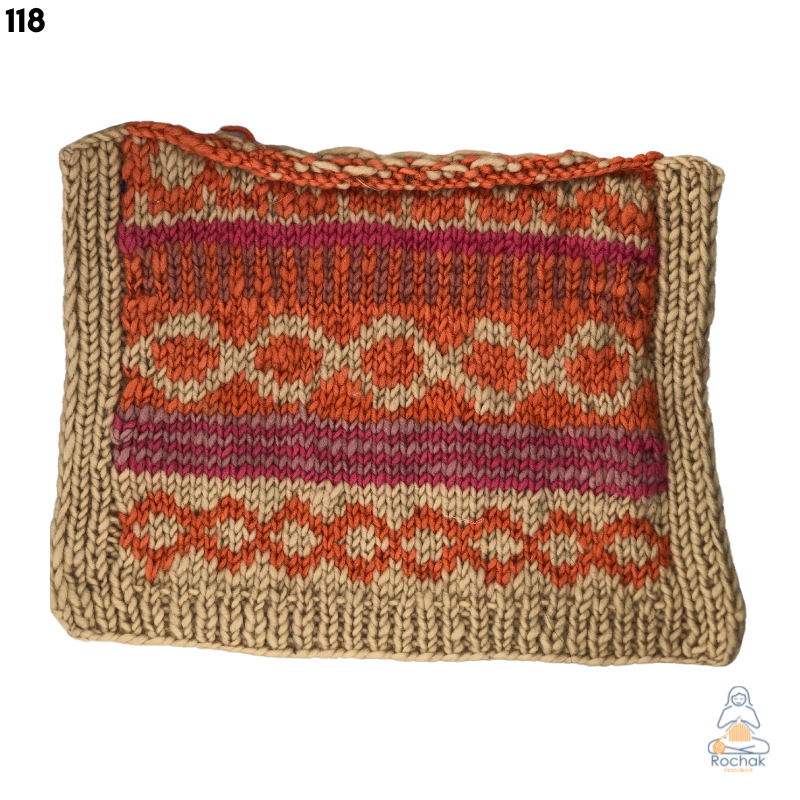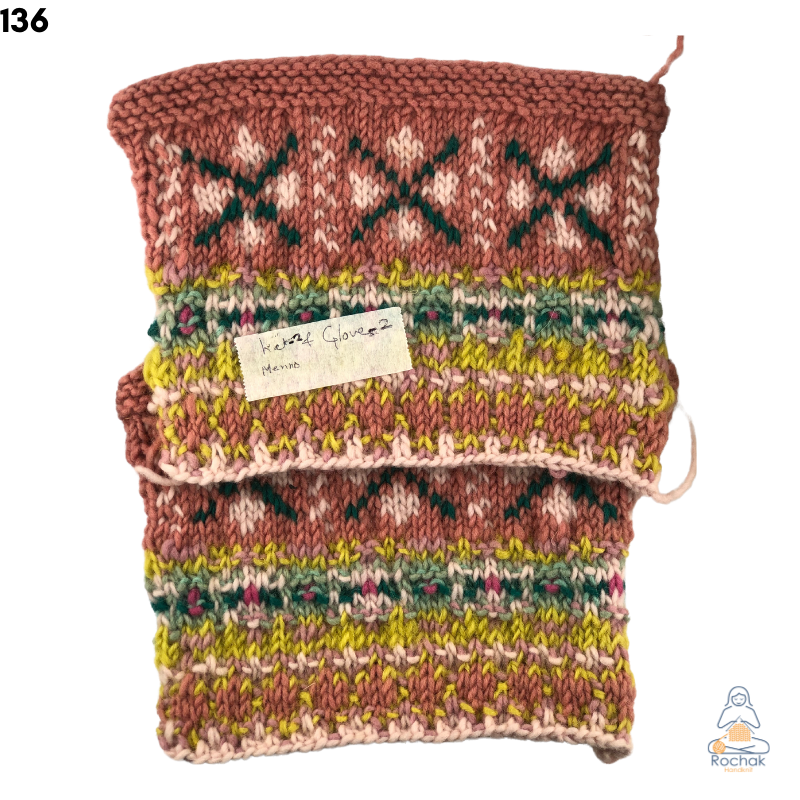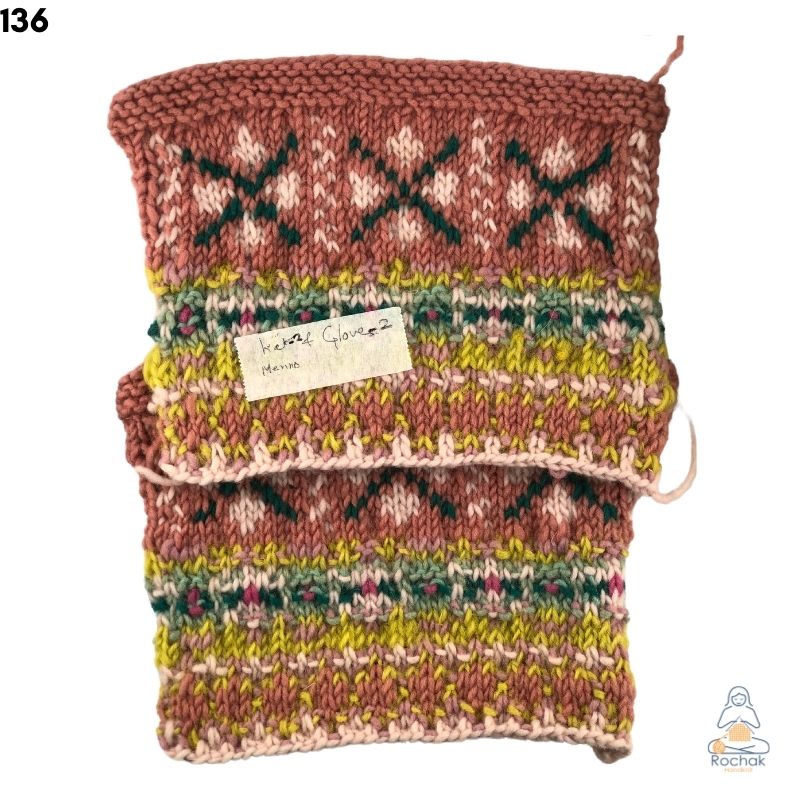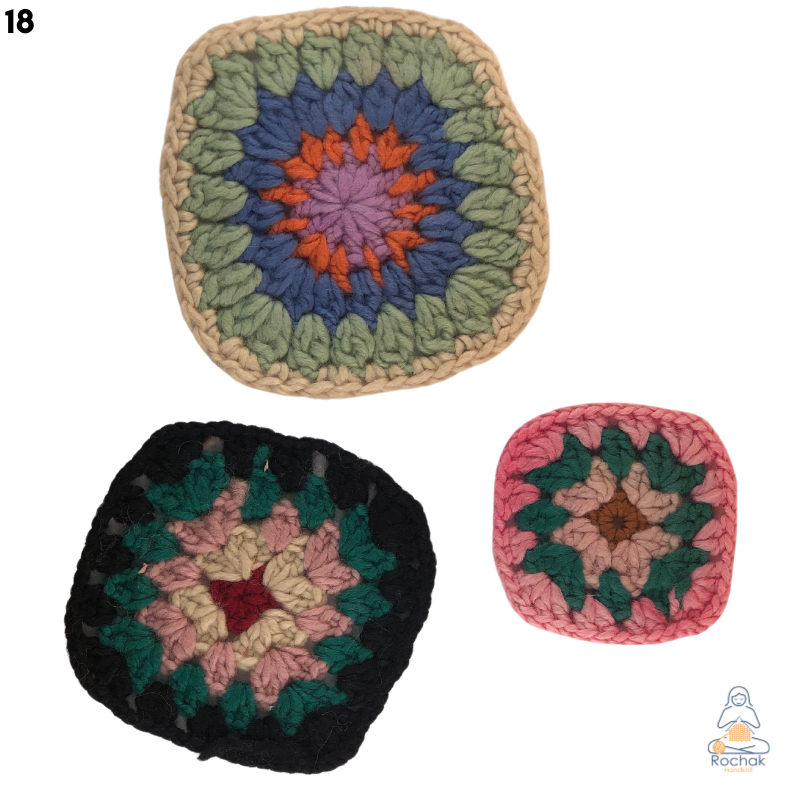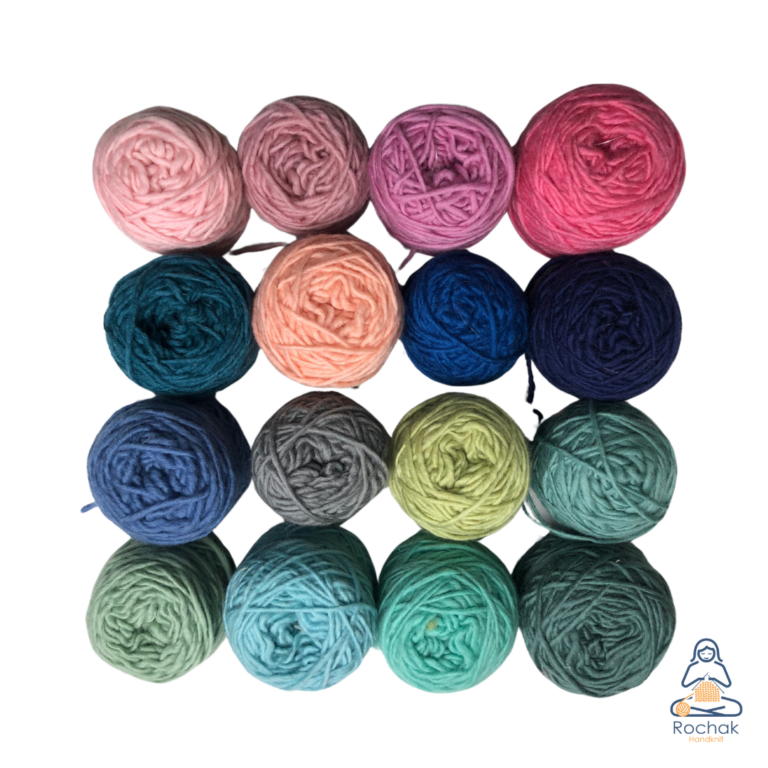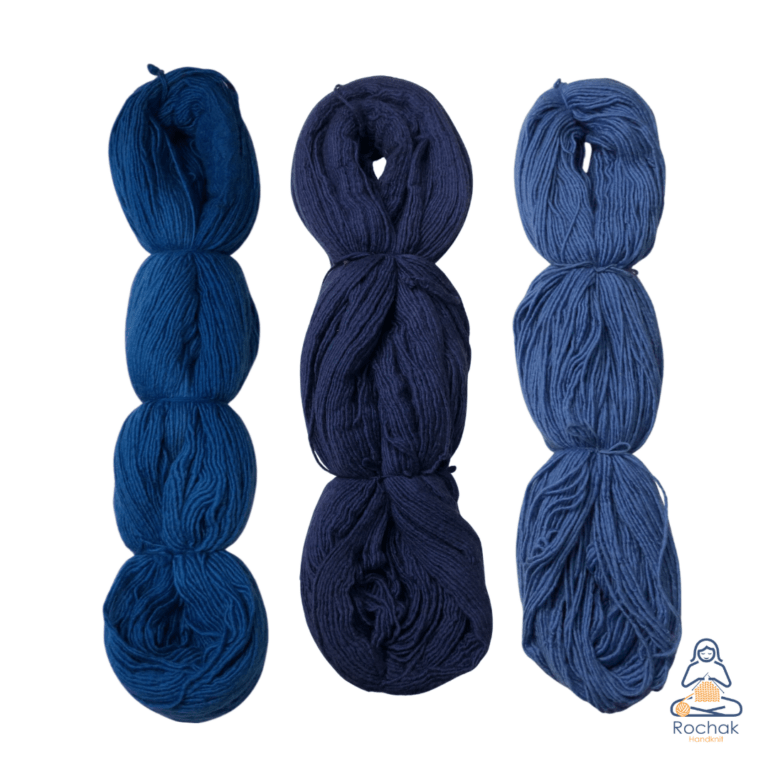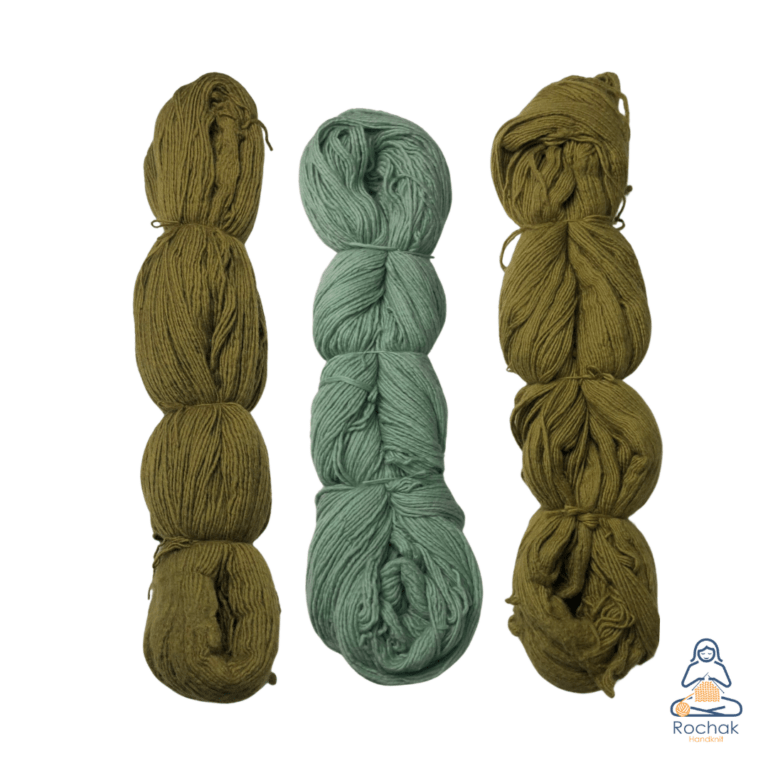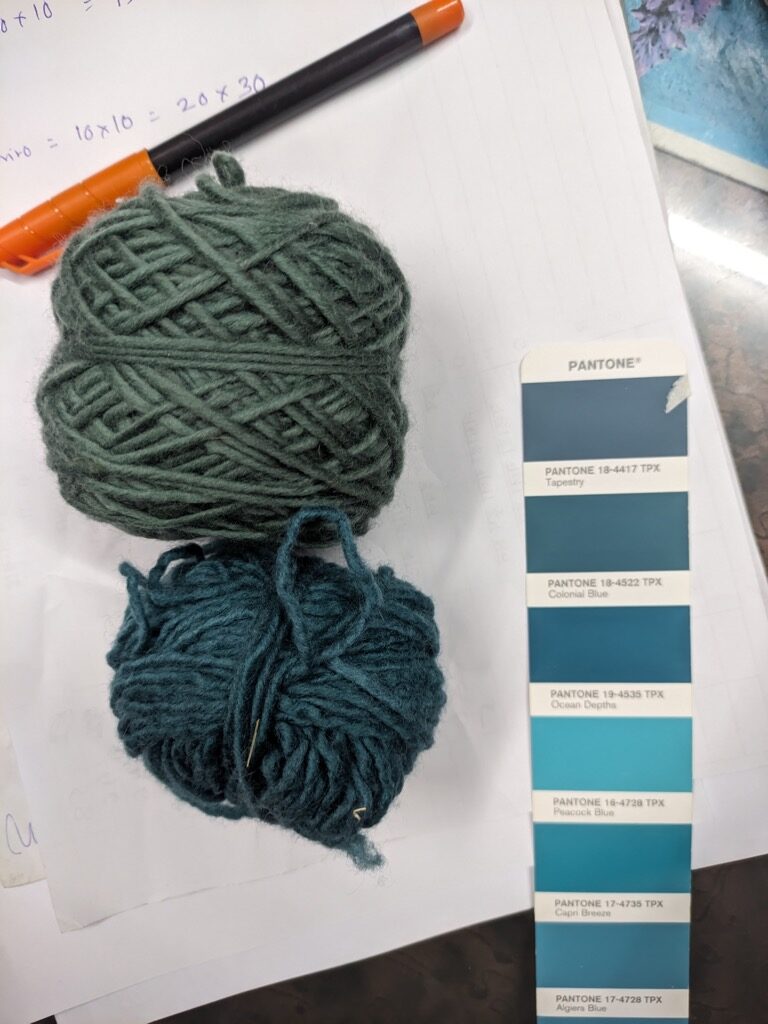Merino Knitwear Manufacturer – Beautiful & Soft hand knitted Apparel
As a Merino Knitwear manufacturer from Nepal, we take pride in using this high-quality raw material to create amazing apparel. With the addition of Merino wool in our stash, this luxury has reached new heights. Merino wool, known for its softness, durability, and breathability, has been widely used in the textile industry.
It is an excellent choice for hand-knitted apparel, as it enhances the beauty and comfort of the finished product.
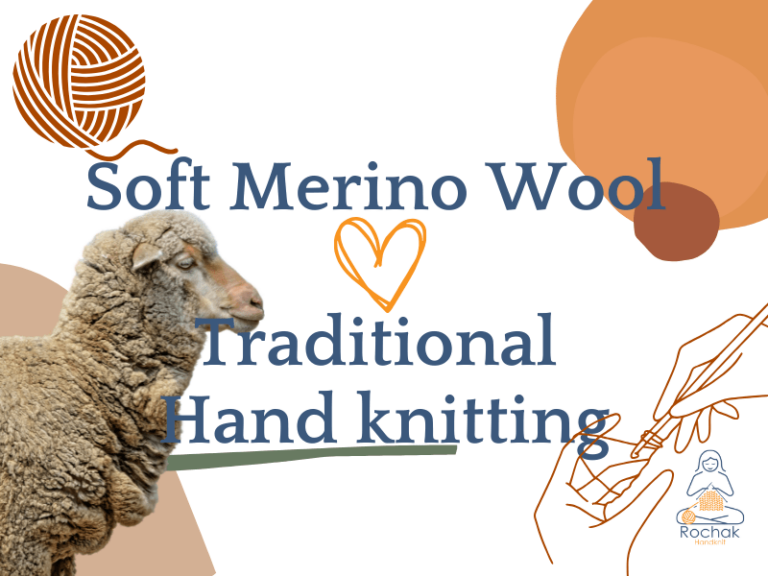
Where does Merino comes from
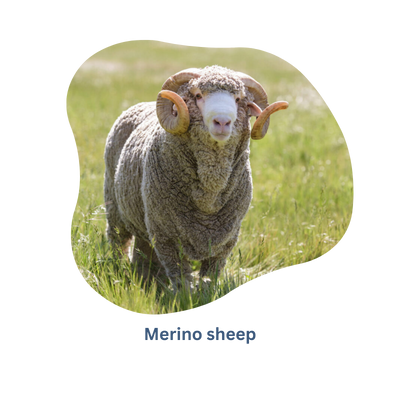
What makes Merino wool special isn’t just where it comes from, but how it’s grown. Each year, these sheep naturally regrow their fleece, providing a renewable, biodegradable fiber that’s both soft and durable.
Merino sheep are typically sheared once a year, usually in spring. This helps keep them comfortable in warmer months and ensures their wool is harvested at its best quality.
On average, a single Merino sheep produces 4 to 5 kg (8 to 11 lbs) of wool per year, but this can vary depending on the breed and environment. Some high-quality Merino sheep, especially those bred for ultra-fine wool, can yield up to 15 kg (33 lbs) in exceptional cases.
About Our Merino
We buy our Merino from local supplier as well as from India. Both of the supplier purchase the raw wool from Australia and process them in their spinning mills.
Since we are purchasing directly from the spinner we have lots of flexibility on fineness of the wool as well as thickness output of the yarn.
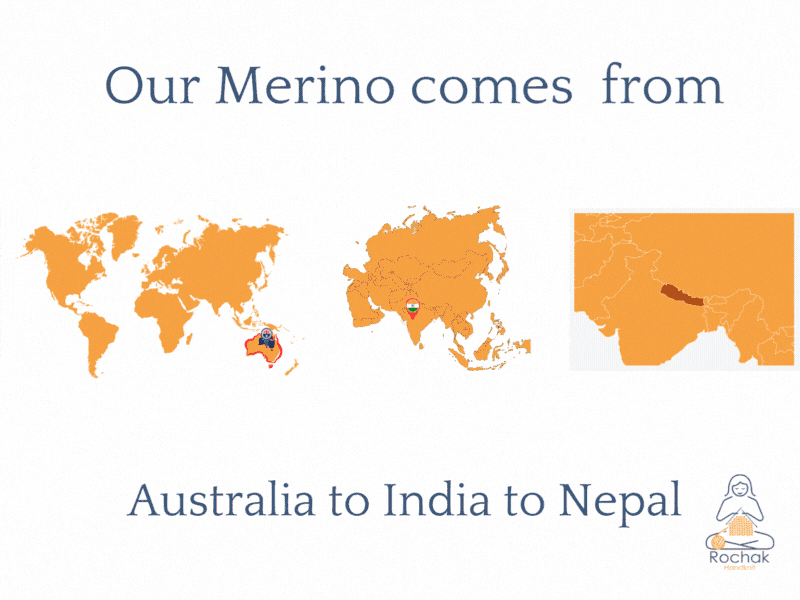
Advantages of Merino Wool
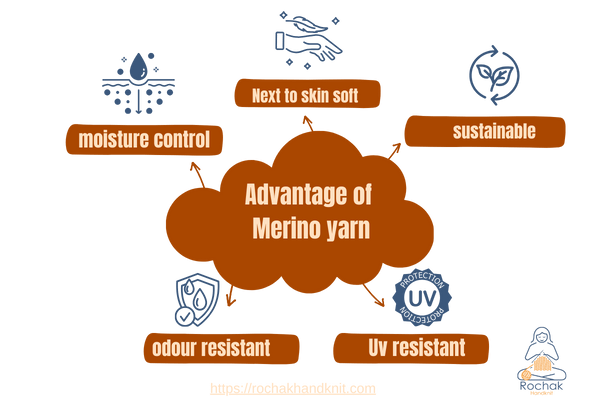
Why Choose Merino YARN In Handmade Knitwear and Crochet Manufacturing
Hand-knitting is a traditional handicraft that has been practiced in Nepal for generations. Our skilled artisans use traditional techniques and tools to create their beautiful hand-knitted apparel.
They use hand-held knitting needles to produce intricate designs and patterns. The art of Hand knitting requires years of experience, passion, and dedication. We believe that the quality of our products is a reflection of the skill, expertise, and craftsmanship that goes into each piece.
Our artisans use a variety of techniques to create their beautiful designs. From simple sweaters to intricate shawls, each piece of hand-knitted apparel is a work of art that reflects the skill and dedication of our artisans.
Hand knitted Apparels and Accessories from Merino yarn
Beanies / Headgears

Hand Warmers

Sweaters / Cardigans

Accessories

Refined to Your Designs and Patterns
We love creating handmade knitwear that’s as unique as you are. Whether you have a specific design in mind or a pattern you want to bring to life, we work closely with you to make sure every detail is just right.
From choosing the perfect yarn to adjusting sizes and shapes, we’re here to turn your ideas into a beautiful, one-of-a-kind piece that fits your style perfectly.
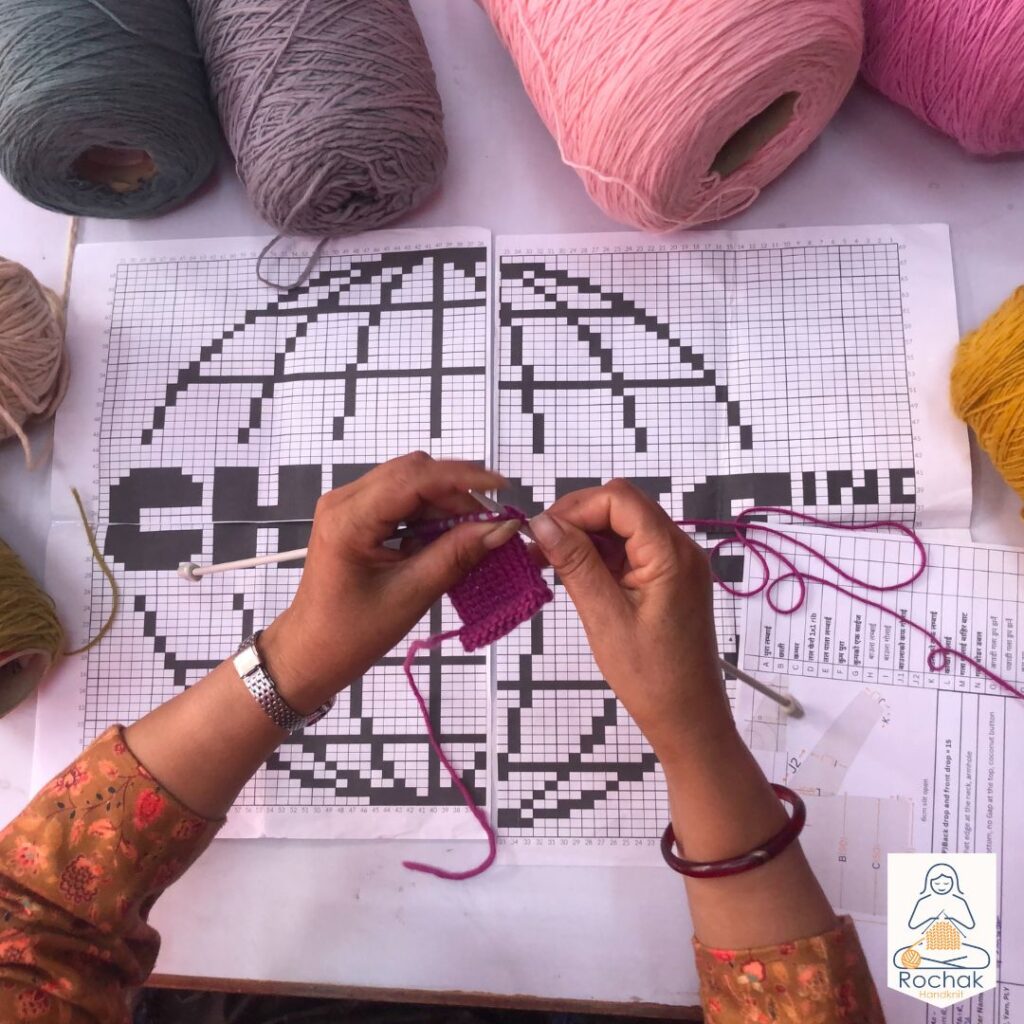
Few Patterns on Merino Yarn
Refined to Your Designs and Patterns
Colors
We also offer a range of customization options, allowing customers to select the pattern, color, and size of knitwear. We can custom dye the colours to the requirement. We have a Pantone Chart that we can refer to for color matching.
Choose yarn COLORS From wide Selection for your knitwear production. We are able to custom dye the colors are your request of Pantone chart.
Gauge and Stitch count of our Merino yarn
Merino wool comes in a variety of microns and can be blended with other materials. However, we specifically use 100% Merino wool that is either 19 or 21 microns in diameter. Our merino yarn has a thickness of 1/2.2 Nm, which means that it is relatively fine compared to other yarns.
The Nm value represents the length of the yarn in meters per gram, with a higher Nm indicating a finer yarn. In this case, the 1/2.2 Nm value suggests that each gram of our merino yarn has a length of 2.2 meters.
Our knitting gauge for jersey knit is 20 stitches and 30 rows per 10 x 10 cm. This means that when knitting a jersey fabric using our merino yarn, you should aim for 21 stitches and 30 rows within a 10 x 10 cm area to achieve the intended fabric density and size.
Soon, we will be stocking TEC merino wool which are machine washable and are suitable for tumble drying.
Caring guidelines for Merino yarn apparels
-Handwash is best. If using a washing machine, select the hand-knit/delicate cycle. Avoid tumble drying or fast spin cycles.
-Handle gently — soft merino wool may pill if subjected to rough use.
-Do not hang to dry — it may stretch and lose shape
– Use cedar balls when storing to protect from moths.
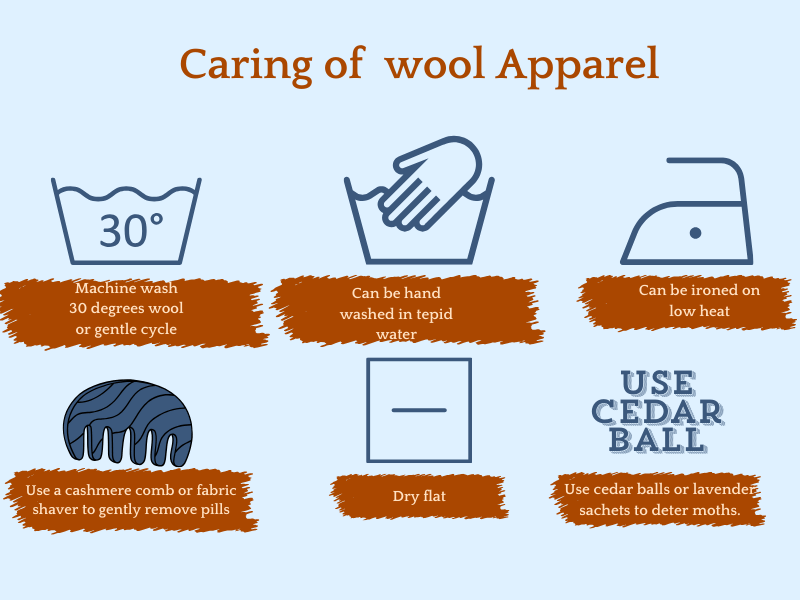
Frequently Asked Questions about Merino yarn
We have listed the commonly asked questions. If you do not find the answers, feel free to reach out to us.
Conclusion
The Merino is wonderful yarn to create beautiful hand knit apparel like Beanies, Sweaters, Wrist warmers and more. This is a versatile yarn with softness that lasts a lifetime.
If you are looking for hand knitted products production in Nepal, our knitting groups with our Merino is perfect match.









